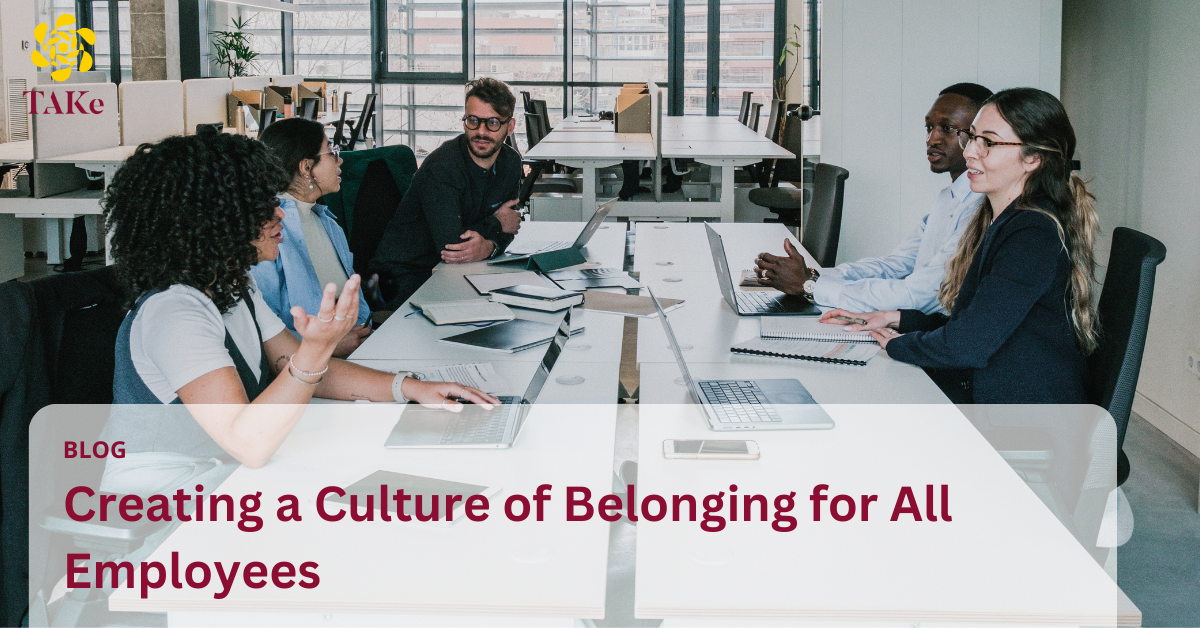Does your organization have a strong culture of belonging?
A “culture of belonging” refers to a workplace culture where everyone feels welcome, valued, and respected. It’s a place where people feel comfortable bringing their authentic selves to work without fear of rejection.
A culture of belonging is essential for any organization that wants to succeed. When people feel like they belong, they’re more engaged, motivated, and creative. They’re also more likely to avoid burnout and deliver their best work.
Keep reading to learn why a culture of belonging is the ultimate advantage in today’s hyper-competitive world and how to cultivate it in your organization.
Why a culture of belonging is the ultimate competitive edge
Every company is capable of having a sub-par company culture. Industry leaders are those who break the mold and create cultures of belonging.
When you focus on building a culture of belonging, your organization also:
1. Attracts and retains top talent.
People are more likely to want to work for a company where they feel like they belong. When you have top talent, you’re better positioned to succeed, and you won’t have to habitually drop big bucks on talent acquisition (which costs roughly $4,700 per new hire).
2. Boosts productivity.
When people feel valued and respected, they’re more likely to be engaged and productive and bring their best selves to work.
3. Drives innovation.
Creative freedom is the key to innovation. If your organization isn’t welcoming to “off-the-wall” ideas, you’ll miss out on opportunities to innovate and think outside of the box.
4. Improves customer satisfaction.
When employees are happy and engaged, it is reflected in their interactions with customers. This can lead to improved customer satisfaction and loyalty.
How to cultivate a culture of belonging in your organization
If you’re interested in cultivating a culture of belonging and encouraging greater employee engagement, here’s where to begin:
1. Define a shared purpose and vision.
What is your organization working towards? When everyone has a clear understanding of the organization’s purpose and vision, it creates a sense of shared identity and community.
2. Promote diversity and inclusion.
Diversity and inclusion are essential for creating a culture of belonging. Make sure that your workforce reflects the diversity of your customer base and welcomes everyone, regardless of race, ethnicity, gender, sexual orientation, religion, or ability.
3. Create a safe space for sharing and learning.
People need to feel comfortable sharing their ideas and experiences. Create an environment where people feel safe to be themselves and to ask questions. This will help to build trust and foster a sense of community and creativity.
4. Invest in employee development.
When employees believe that they are learning and growing at work, they’re more likely to be engaged and motivated. Offer employees opportunities for training and development, which will encourage them to reach their full potential and contribute more to the organization.
Let’s work together to build a more inclusive workplace
If your teams are cliquey or your employees seem tuned out, your organization may struggle with providing its employees with a sense of belonging and inclusion. It would benefit from further investment and work in this area.
If you’re ready to learn more about cultivating a culture of belonging in your organization, contact TAKe Brand Consulting today. We can help you assess your current culture, develop a plan to make changes and implement that plan effectively.


